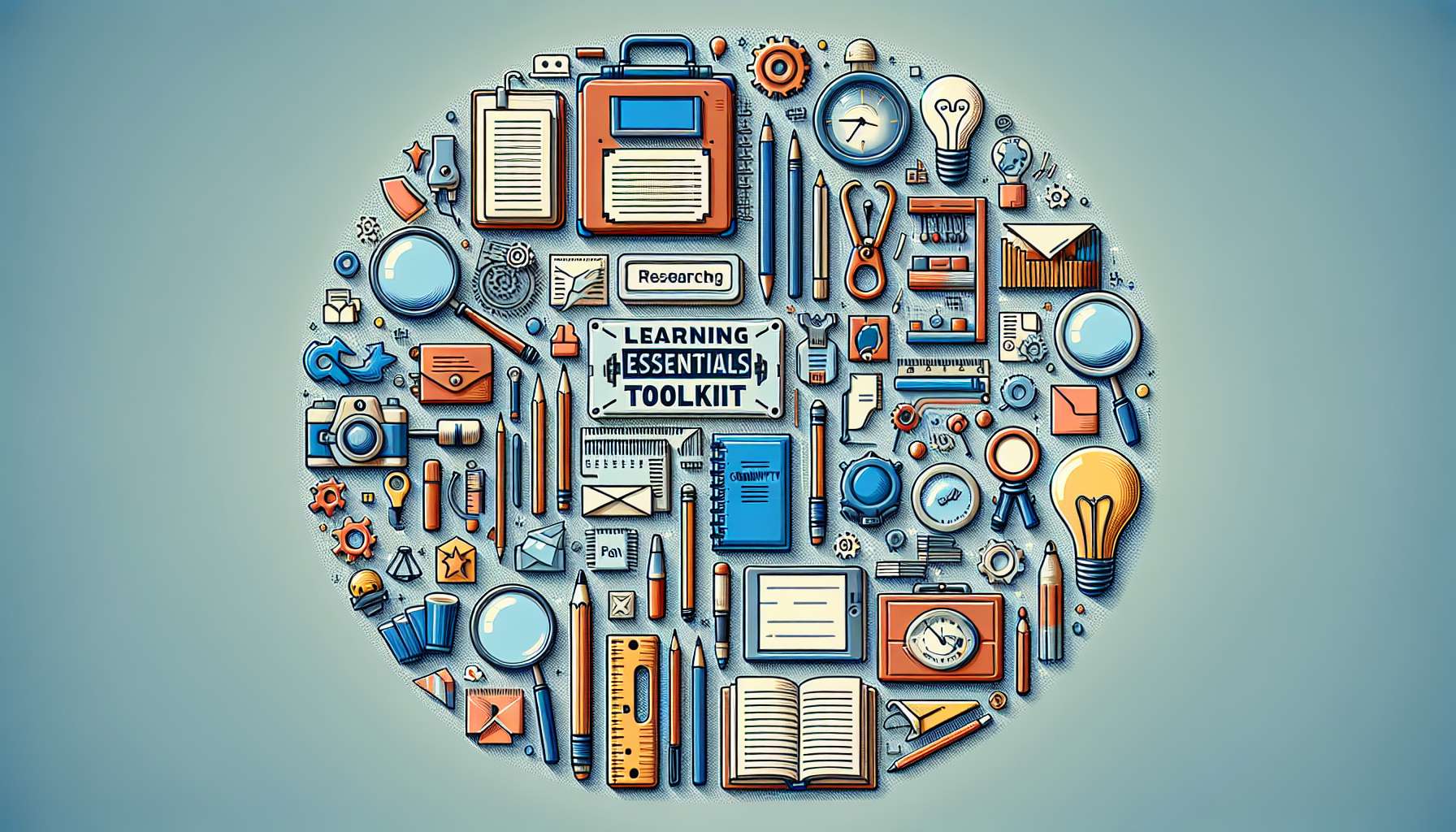Exploring Learning Frameworks: A Comprehensive Guide
Learning frameworks are crucial tools that shape the way we acquire, process, and retain knowledge in various contexts. From educational settings to professional development, these frameworks serve as fundamental structures that guide our learning experiences. In this article, we will delve into the intricate world of learning frameworks, examining their significance, applications, and impact on our cognitive development. Join us on this enlightening journey as we unravel the secrets behind effective learning frameworks.
The Foundation of Learning Frameworks
At the core of learning frameworks lies the concept of organizing information in a systematic and coherent manner. By structuring knowledge into manageable components, individuals can better comprehend complex subjects and retain information more effectively. This foundation is built upon the principles of cognitive psychology, which explore how the human mind processes, stores, and retrieves information. Understanding these underlying mechanisms is essential for creating robust learning frameworks that cater to diverse learning styles and preferences.
One of the key components of learning frameworks is the concept of scaffolding, which involves providing support and guidance to learners as they navigate new concepts and skills. This scaffolding helps learners build upon their existing knowledge and gradually acquire more advanced competencies. Additionally, learning frameworks often incorporate elements of self-regulated learning, empowering individuals to take control of their learning process and monitor their progress towards achieving specific goals.
Types of Learning Frameworks
There are various types of learning frameworks that cater to different learning objectives and methodologies. One common type is the behaviorist framework, which emphasizes the role of external stimuli in shaping behavior and learning outcomes. Behaviorist frameworks often rely on reinforcement and conditioning techniques to encourage desired behaviors and reinforce learning.
Another prominent type of learning framework is the constructivist approach, which posits that learners construct their own understanding of the world through active engagement with new information. Constructivist frameworks encourage hands-on learning experiences, collaborative activities, and critical thinking skills to enhance learning outcomes.
Additionally, cognitive learning frameworks focus on the internal processes of the mind, such as memory, attention, and problem-solving. These frameworks explore how learners encode, store, and retrieve information, shedding light on the cognitive mechanisms that underpin learning and knowledge acquisition.
Applications of Learning Frameworks
Learning frameworks find applications in a wide range of settings, including education, training, and personal development. In educational settings, teachers use learning frameworks to design curriculum, plan lessons, and assess student progress. By aligning instructional strategies with effective learning frameworks, educators can create engaging and meaningful learning experiences for their students.
Similarly, corporate training programs often rely on learning frameworks to enhance employee skills, improve job performance, and foster a culture of continuous learning within organizations. By incorporating elements of self-directed learning and feedback mechanisms, companies can empower their employees to take ownership of their professional development and stay abreast of industry trends.
On a personal level, individuals can leverage learning frameworks to enhance their study habits, improve time management skills, and maximize their learning potential. By adopting personalized learning frameworks that cater to their unique learning styles and preferences, individuals can optimize their learning outcomes and achieve their learning goals more efficiently.
Benefits of Implementing Learning Frameworks
The implementation of learning frameworks offers a myriad of benefits for learners, educators, and organizations alike. One of the key benefits is improved knowledge retention, as structured learning frameworks help individuals organize and store information in a more systematic manner. By reinforcing key concepts and connecting new information to existing knowledge, learners can enhance their long-term memory and recall abilities.
Additionally, learning frameworks promote critical thinking skills, problem-solving abilities, and metacognitive awareness among learners. By encouraging active engagement with new concepts, collaborative learning experiences, and reflection on one’s learning process, frameworks empower individuals to become independent and self-directed learners.
Furthermore, learning frameworks foster a growth mindset and a culture of lifelong learning, encouraging individuals to embrace challenges, seek feedback, and continuously improve their skills. By promoting a positive attitude towards learning and development, frameworks enable individuals to adapt to changing environments, acquire new competencies, and thrive in a rapidly evolving world.
Challenges and Controversies in Learning Frameworks
While learning frameworks offer numerous benefits, they are not without their challenges and controversies. One common criticism is the one-size-fits-all approach of some frameworks, which may not cater to the diverse learning styles and preferences of individuals. To address this issue, educators and organizations must adopt a more personalized and flexible approach to learning frameworks, allowing for customization and adaptation based on individual needs.
Another challenge is the integration of technology in learning frameworks, which has both positive and negative implications. While technology can enhance learning experiences through interactive simulations, online resources, and virtual collaboration tools, it can also lead to distractions, information overload, and decreased attention spans. Finding the right balance between technology and traditional learning methods is essential for creating effective and engaging learning frameworks.
Moreover, the assessment and evaluation of learning frameworks pose a significant challenge, as measuring the impact of frameworks on learning outcomes can be complex and multifaceted. Traditional assessment methods, such as standardized tests and exams, may not capture the full range of skills and competencies developed through learning frameworks. Educators and researchers must explore innovative assessment strategies, such as portfolio assessments, performance tasks, and peer evaluations, to provide a more holistic view of learning outcomes.
Expert Opinions on Learning Frameworks
According to Dr. John Hattie, an education researcher and author, learning frameworks play a crucial role in promoting effective teaching practices and student learning outcomes. Hattie emphasizes the importance of visible learning, where teachers make learning explicit, provide feedback, and encourage students to take ownership of their learning process. By aligning instructional strategies with evidence-based practices and learning frameworks, educators can enhance student engagement, motivation, and achievement.
Similarly, Dr. Carol Dweck, a psychologist known for her research on mindset and motivation, highlights the impact of learning frameworks on fostering a growth mindset among learners. Dweck’s work on the power of yet and the growth mindset emphasizes the importance of adopting a positive attitude towards challenges, embracing mistakes as opportunities for growth, and believing in one’s ability to improve through effort and perseverance. By incorporating elements of growth mindset theory into learning frameworks, educators can empower learners to develop resilience, grit, and a passion for learning.
Common Misconceptions about Learning Frameworks
One common misconception about learning frameworks is that they limit creativity and freedom in the learning process. However, effective learning frameworks provide a structured yet flexible framework that guides learning experiences without imposing rigid constraints. By offering a scaffolded approach to learning, frameworks empower individuals to explore new ideas, experiment with different strategies, and express their creativity within a supportive learning environment.
Another misconception is that learning frameworks are static and unchanging, whereas in reality, frameworks should be dynamic and adaptable to evolving learning needs and trends. By incorporating feedback mechanisms, reflection activities, and ongoing evaluation processes, educators and learners can continuously refine and adjust learning frameworks to optimize their effectiveness and relevance.
Comparative Analysis of Learning Frameworks
When comparing different learning frameworks, it is essential to consider their underlying principles, methodologies, and outcomes. Behaviorist frameworks focus on observable behaviors and external stimuli, emphasizing conditioning and reinforcement techniques to shape learning outcomes. In contrast, constructivist frameworks prioritize active engagement, collaboration, and critical thinking, encouraging learners to construct their own understanding of the world through hands-on experiences.
Cognitive learning frameworks delve into the internal processes of the mind, exploring how learners encode, store, and retrieve information to enhance their cognitive abilities. These frameworks emphasize memory strategies, attentional control, and problem-solving skills to optimize learning outcomes. By comparing and contrasting these different frameworks, educators and learners can identify the strengths and limitations of each approach and tailor their learning experiences to meet specific learning objectives.
FAQs about Learning Frameworks
Q: What is the role of metacognition in learning frameworks?
A: Metacognition refers to the ability to monitor, regulate, and evaluate one’s own learning process. In learning frameworks, metacognitive strategies help individuals become more aware of their learning preferences, strengths, and areas for improvement. By incorporating metacognitive activities, such as self-assessment, goal setting, and reflection, learners can enhance their metacognitive awareness and optimize their learning outcomes.
Q: How can educators incorporate learning frameworks into online learning environments?
A: Educators can leverage online platforms, interactive tools, and multimedia resources to create engaging and interactive learning experiences that align with learning frameworks. By incorporating elements of self-directed learning, collaborative activities, and feedback mechanisms, educators can foster a sense of community, engagement, and motivation among online learners. Additionally, educators can use data analytics and learning management systems to track student progress, provide personalized feedback, and adapt instructional strategies based on learners’ needs.
To Wrap Things Up
Learning frameworks are indispensable tools that shape our learning experiences, enhance our cognitive abilities, and empower us to become lifelong learners. By understanding the principles, applications, and implications of learning frameworks, we can optimize our learning outcomes, foster critical thinking skills, and adapt to the ever-changing landscape of education and training. Let us embrace the power of learning frameworks and embark on a journey of discovery, growth, and transformation through the art of learning.




